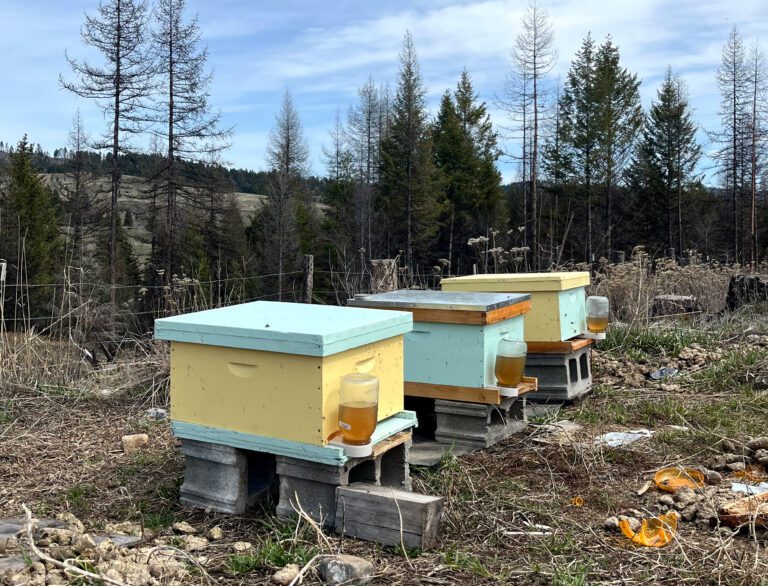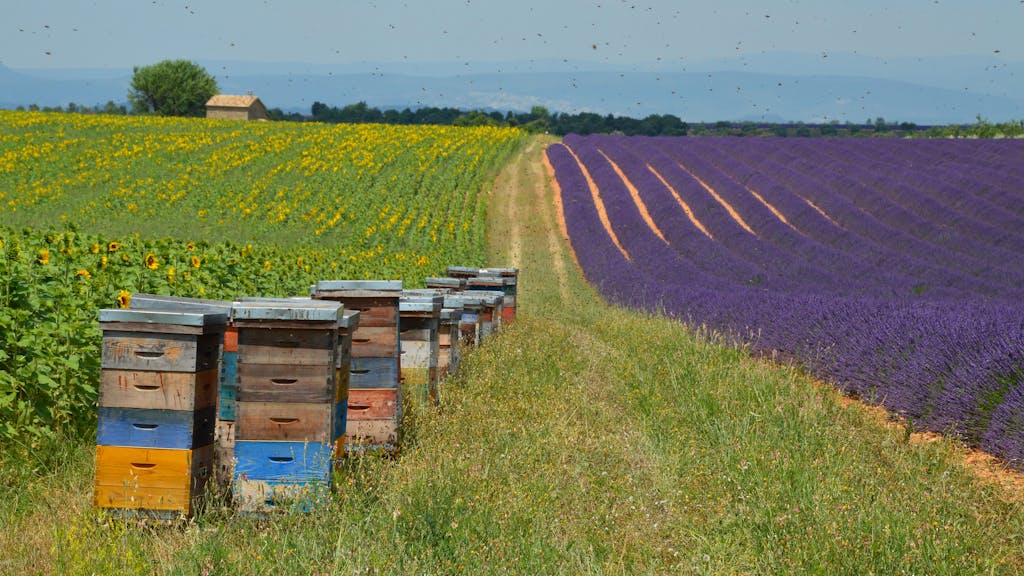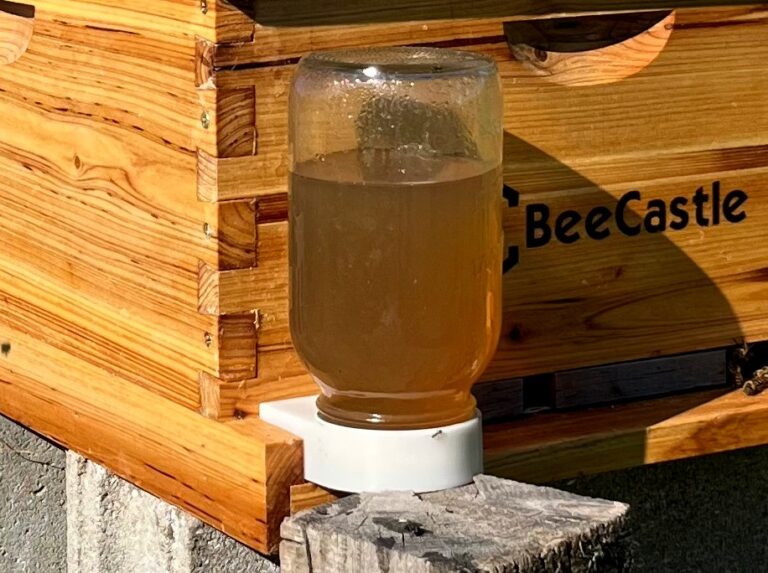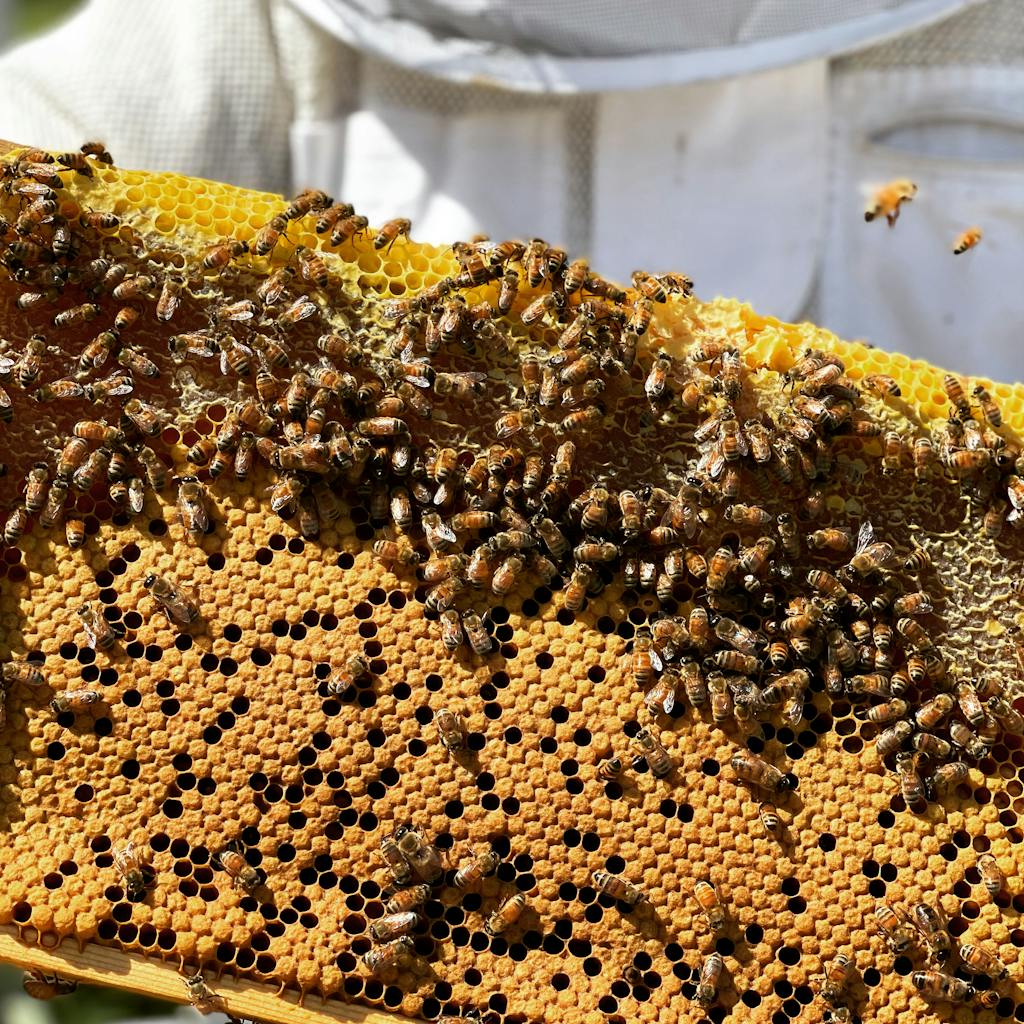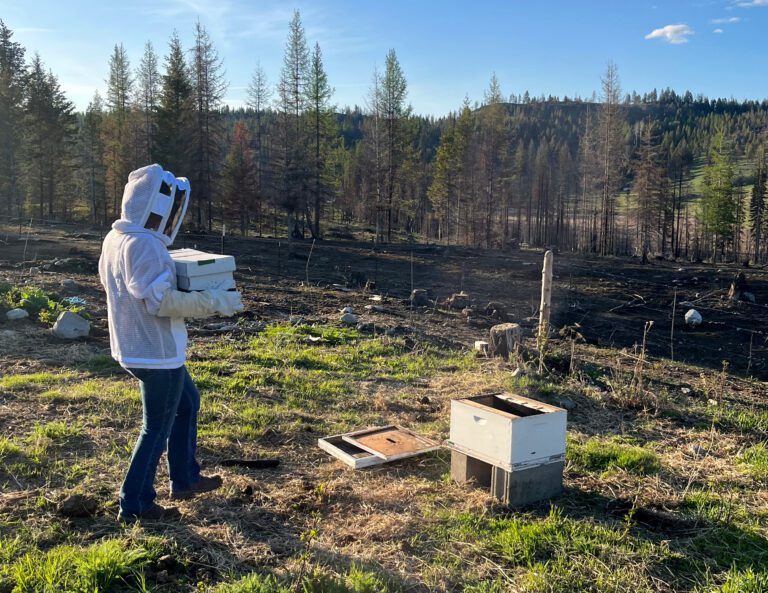How to Raise Honeybees Without Treatment
Learn about how you can raise honeybees without treatment, and if it’s the right choice for you and your apiary.
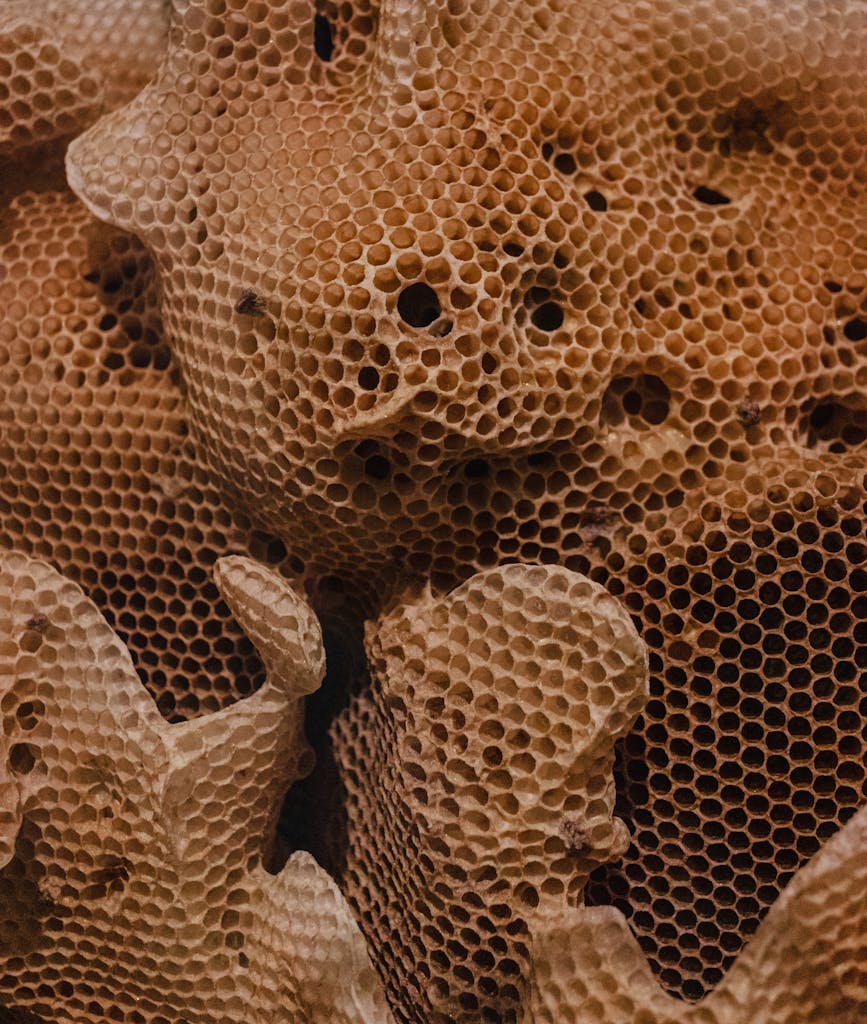
Raising Honeybees Without Treatment: A Controversial Topic
So you’re probably reading this because you want to start beekeeping, but you are not sure about using chemicals around your bees. This is a very controversial topic, and some beekeepers will certainly tear you down if you decide to raise honeybees without treatment, but we are going to break it all down so you can decide for yourself.
There is a saying, “You can ask 10 beekeepers the same question, and you’ll get 10 different answers.” This is the absolute truth! I had done a lot of research before getting into beekeeping, which included asking many different beekeepers for questions and advice. At the end of the day, I had to make decisions on my own about this or that, with the information I had been given.
I am only on my second year of beekeeping, but I have experienced a lot already. My first year had laying workers, which my mentor of 10 years has still yet to experience! I am also in a very cold climate, at a higher elevation. It’s certainly not easy to get bees through the winter where I live, but I know it’s possible. My first year bees almost made it through the winter, as a small colony, that hadn’t been treated since I got them, but in March the insulation I had on the hive blew off in the night, and the negative temps we had that night took them out.
This article contains affiliate links, meaning I make a small percentage off of your purchase at no extra cost to you. Read my full affiliate link disclosure here.

What Does it Mean to Raise Honeybees Without Treatment?
Raising bees without treatment, is exactly how it sounds. You do not treat for varroa mites. Yes, varroa are bad for honeybees. They can cause disease, and wipe out an entire hive. But we are actually not doing them any favors by treating them with the harsh chemicals. There are said to be “natural” alternatives to treating for varroa, but here’s my take on it: It’s best to just let nature take it’s course. By treating for varroa mites, we are only making the mites stronger. Over time, the mites will become genetically resistant to these chemicals, in turn becoming the honeybee’s worst nightmare.
There is an essential oil that some beekeepers use for treating mites naturally, and that is thymol. You can also spray with a sugar water spray, or dust with powdered sugar to encourage grooming. I have personally not felt the need to do any of these things yet, because I have not seen many mites in my colonies. If I started seeing signs of excessive mites, I’d try these chemical alternatives to give the bees a little support, but at the end of the day, it’s best to let them learn to take care of the mites on their own, and pass on the strong mite-resistant genetics.
There are mite-resistant queens for sale, you can purchase one of these queens and replace your current queen to get a jump start on the good genetics. They are quite spendy though.
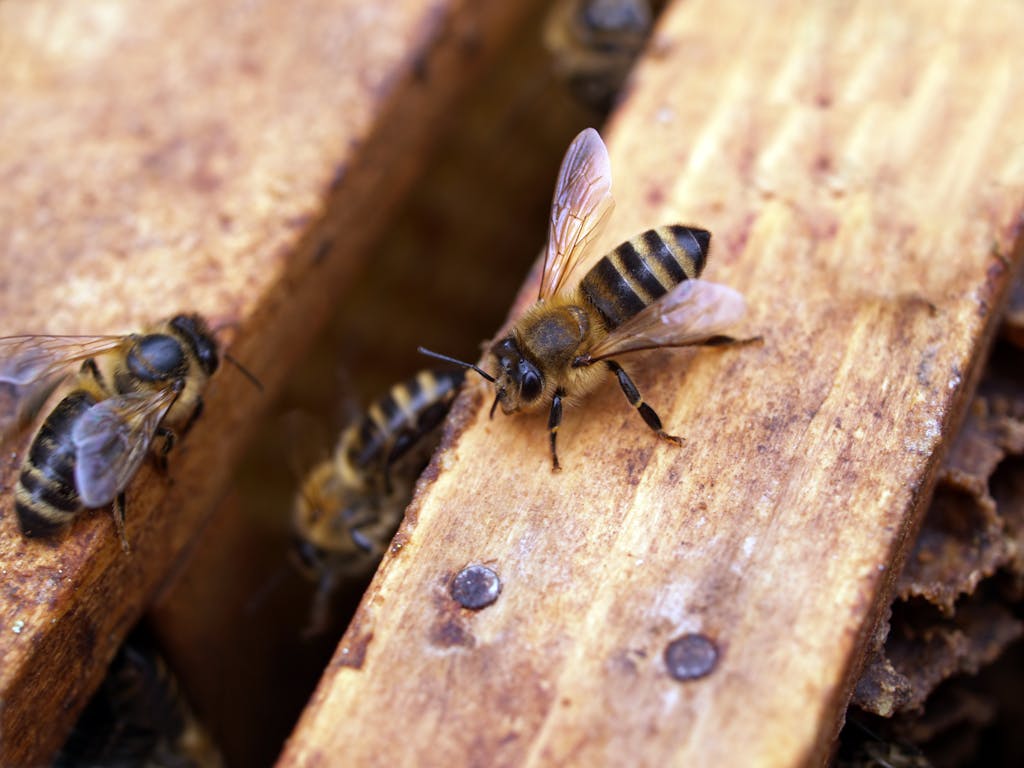
The Choice is Yours
So I encourage you to do your own research regarding raising honeybees without treatment. There are Facebook groups you can join, online articles, books, and so much more. Backyard Beekeeping is my favorite book suggestion for beginner beekeepers. There are going to be naysayers, but go with your gut feeling, and what feels right to you. Do your research and make an informed decision.
There are many successful treatment-free beekeepers. Bees also survive in the wild, and thrive with no human intervention. Along with not treating my bees for varroa, I also let them be as much as possible. I do minimal hive inspections, and I also plan to get a more “natural” hive eventually. Right now I am just working with what I’ve got, which is Langstroth hives.
If you are brand new to beekeeping, the best bees you could start your apiary with are wild bee swarms, or a swarm from someone who also doesn’t treat their bees. If you can’t get access to either of those, that’s okay too. Just work with what you are able to get! Another great thing about natural beekeeping, is you don’t need to buy any fancy equipment or chemicals for treating your hives. This also saves money on the startup costs of beekeeping, and just means less stuff you have to do.
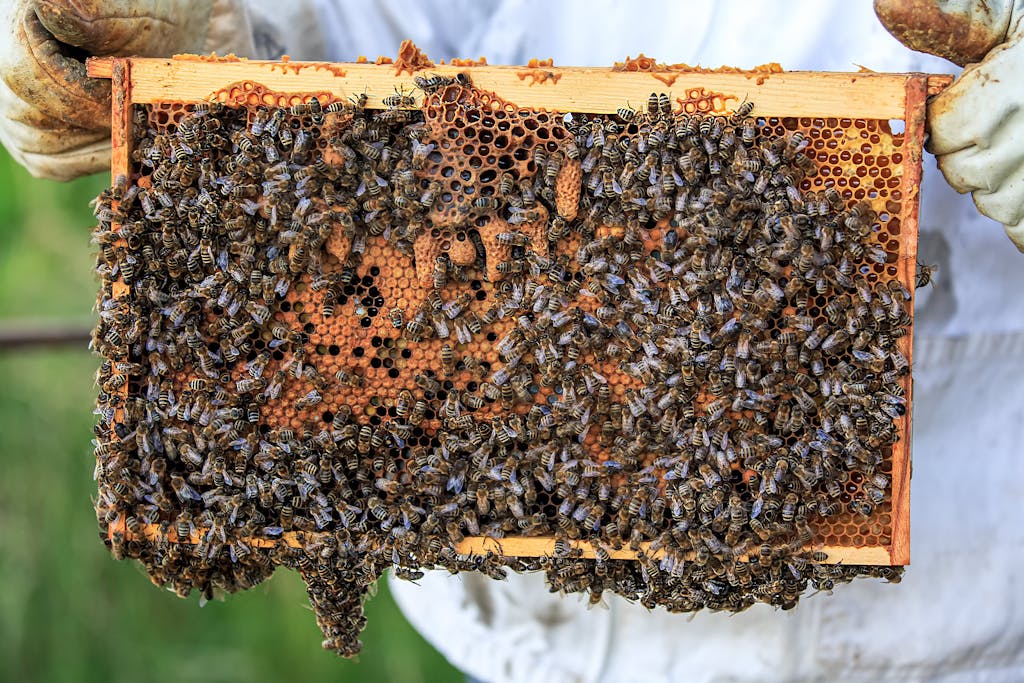
Honey and Treatments
Honey that has been “contaminated” from the treatment chemicals is not safe for consumption. You must harvest honey before you start treating your bees that year. There is an alternative to the other chemicals that is said to be safe for consumption, but I don’t feel comfortable collecting honey from bees that have been treated recently, no matter what.
In fact, I don’t feel comfortable with it at all. I want my honey, and other bee byproducts to be as pure as possible, so the idea of treating the hive with harsh chemicals multiple times a year just bothers me. Not everyone feels this way, so it’s important to be mindful about who you decide to discuss treatment-free beekeeping with. Some people can get pretty nasty about the subject, especially in beekeeping Facebook groups.
Conclusion
If you are still interested in treatment-free beekeeping, I highly recommend the book The Practical Beekeeper to learn more about natural beekeeping. There are many benefits to raising honeybees without treatment, but it’s important to do your own research and decide for yourself! It seems scary, but it’s truly not. You just have to let the bees do what they were born to do, and they will thrive!
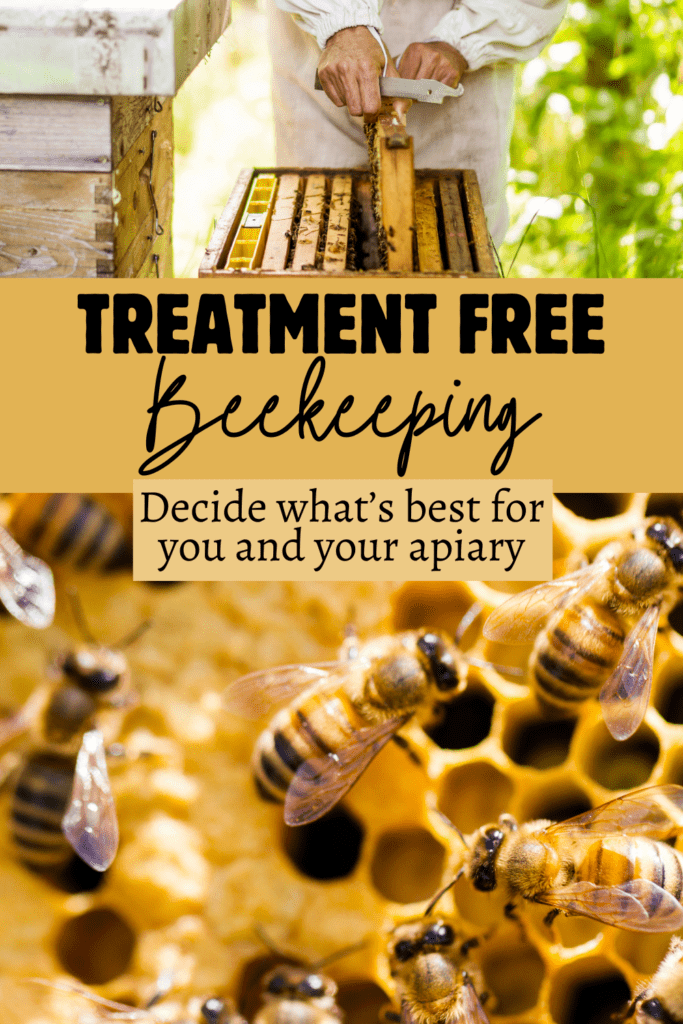
FAQ About Treatment-Free Beekeeping
What is treatment-free beekeeping?
Treatment free beekeeping is raising bees naturally, with as little intervention as possible.
Will my bees die if I don’t treat them for mites?
Bees can die for a multitude of reasons, mites being one of the causes. If you have a major mite problem, it could take out your entire hive.
Are there natural alternatives to treat for mites?
Yes, you can use thymol essential oil, or sugar spray/powdered sugar. But letting the bees do their own natural thing is best!
Can bees defend themselves against mites?
Yes, some bees have better genetics for this than others. They groom themselves often and get rid of the mites.

